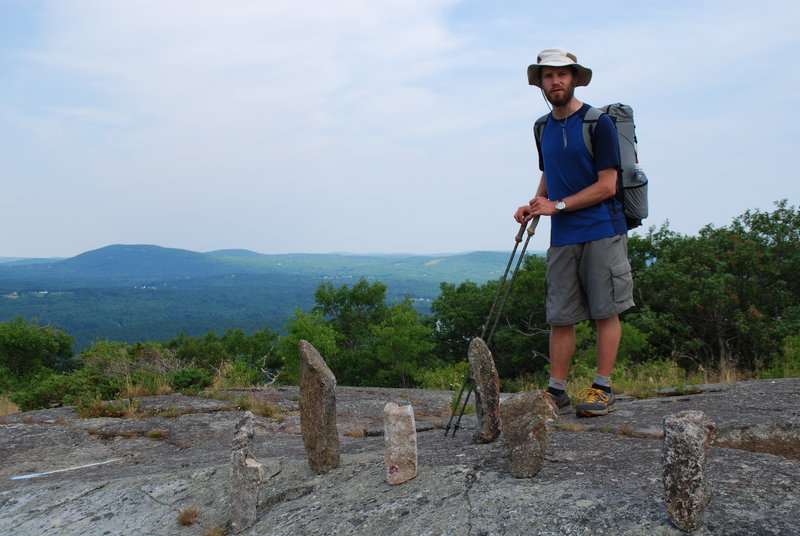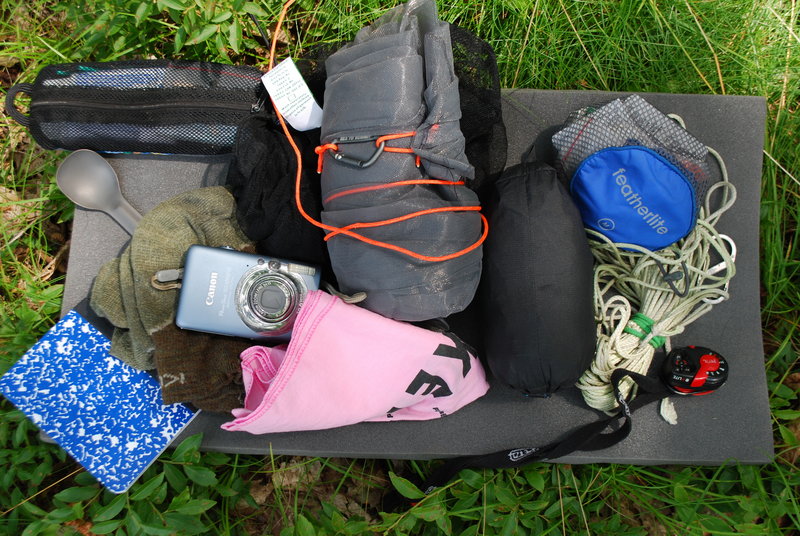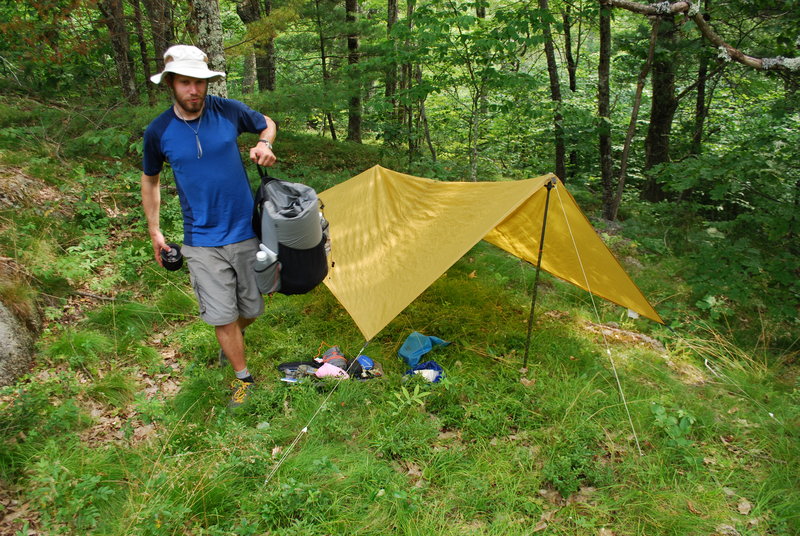CAMDEN – Ultra-light hiking has been embraced by the long-distance hiking community for at least a decade. But this scaled-down way of migration can be misunderstood. It’s not always about record-setting, cliff-bagging, speed or efficiency. Sometimes it simply is a question of comfort.
“I think there are two misunderstandings about ultra-light hikers. That it’s for speed or for long hikes. I like to carry loads like this for a weekend trip. For me it’s about not being exhausted at the top of the mountain and feeling like I carried a dead body up there,” said Ryan Linn, a Camden native and longtime ultra-light hiker.
The ultra-light hiking trend has grown the past 10 years. Today it’s more about a state of mind than a movement. But it is definitely about movement.
“There appears to be a trend toward lighter gear that has been around for at least 10 years. And each year there seems to be more people gravitating toward the lighter weight gear. Thru-hikers have been known for trying to shave weight off by cutting the handles off their toothbrushes; cutting off their belt loops. Ultra-light gear helps do that. Today they hike with around 35 pounds as opposed to 50,” said Rob Burbank, the Appalachian Mountain Club spokesman.
While the Appalachian Trail and other long-distance trails always have been about traveling light, today a whole industry is behind the effort, making ultra-light tents, backpacks, poles and stoves.
Linn, 28, owns a backpack, tent, poles, first-aid kit, hand-held stove and head lamp made with ultra-light material.
Linn first went backpacking in the Mahoosuc Mountains while at Gould Academy in Bethel and hated it.
“I got destroyed. I was the smallest guy in the group and had to carry a giant Coleman stove,” Linn said.
Eventually he got the bug, and three years later when he went to Vassar College in New York he became a leader in the school’s outing club. He even spent a semester at the National Outdoor Leadership School in Montana, learning the ultimate rigors of heavy backpacking.
“We were like pack mules, carrying 70 pounds into the high mountains. That’s a little more than half my weight,” Linn said. “I decided to do the (Appalachian Trail) after I graduated and a friend said, ‘You can’t do it like you did (at the Montana school).’ “
A weekend trip on a section of the Appalachian Trail changed Linn’s outdoor life. He met an ultra-light hiker. The man was not a speed-hiker or record-setter. He just wanted to relax.
Since then, Linn, 28, has fully embraced the purest elements of ultra-light hiking.
His pack and gear weigh just 111/2 pounds; food for six days brings the total weight to 28 pounds. And as he eats his way down to 15 and 12 pounds, his pack weighs next to nothing.
He meanders at an easy pace, covering as many as 20 miles a day, but over many hours.
He has a light tarp he fashions into a tent with string, stakes and his hiking pole, which is also feather-light. His sleeping bag is light and has no pouch, but rather is packed around his food. He does use a sleeping pad, but it doubles as the foam support in his pack, which otherwise is ultra-light material with no clasps or other padding.
Linn’s two water jugs are just plastic recyclable bottles, which are lighter than Nalgene bottles.
A sack full of bare essentials is but a few pounds filled with a head lamp, a palm-size first-aid pouch, an insect net, rain pants, and bear rope to hang food, bandanna, camera, journal, socks, spoon and toiletry pouch. He also carries a GPS, cell phone and pocket camera for safety’s sake.
When speaking on ultra-light backpacking at a seminar in Boston, Linn said he met senior hikers with bad knees, executives short on time, and engineers who just plain liked the challenge inherent in ultra-light backpacking.
The lightweight approach is appealing to all of them, Linn said.
“When you only have a weekend when you’re working and you don’t have time to get in shape for a big hike, ultra-light backpacking makes it possible,” he said.
Staff Writer Deirdre Fleming can be contacted at 791-6452 or at:
dfleming@pressherald.com
Twitter: Flemingpph
Copy the Story Link
Send questions/comments to the editors.






Success. Please wait for the page to reload. If the page does not reload within 5 seconds, please refresh the page.
Enter your email and password to access comments.
Hi, to comment on stories you must . This profile is in addition to your subscription and website login.
Already have a commenting profile? .
Invalid username/password.
Please check your email to confirm and complete your registration.
Only subscribers are eligible to post comments. Please subscribe or login first for digital access. Here’s why.
Use the form below to reset your password. When you've submitted your account email, we will send an email with a reset code.